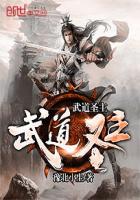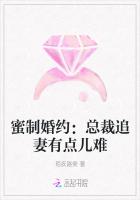Escalating growth in the last 10 years was fueled by both a surge in overseas demand for increasingly well-made Chinese products and the domestic fact of urbanization, with China’s huge rural labor force moving inexorably into the cities. Increased investment in infrastructure, construction and industry, coupled with the explosion of the real estate market accounted for the majority of GDP growth. “For thirty years, an economy driven by domestic demand hasn’t been established in China. Instead, investment has always been the driving force behind economic growth,” said Professor Han Zhiguo, an economist from Jilin University.
Economist Zheng Bingwen, director of the World Social Insurance Research Center of the Chinese Academy of Social Sciences (CASS), has said this “third stage” has been driven by resources, including “labor, natural resources, capital and land.” Reaping the rewards of a population peak, cheap labor has been abundant in the last decade, leading to a boom in labor-intensive industries. In a recent commentary in the China Securities Journal, Zheng stated that from 1997 to 2008, the average contribution rate of land assets to economic growth was from 20 to 30 percent per year. Resource consumption also contributed massively to industrial growth, with mineral wealth alone ac-counting for 37 percent, followed by environmental resources (18 percent) and energy (16 percent.) This also fueled the stockpiling of vast national assets. According to figures from the People’s Bank of China (PBC), China’s foreign exchange reserves increased from US212 billion in 2001 to US2.85 trillion in 2010.
The 11th Five Year Plan was an attempt to return an increasingly runaway economy back on the rails. However, when the global financial crisis hit in 2008, China responded with a 4 trillion yuan (about US570bn) stimulus package to offset the damage caused by a plunge in exports. While the bailout managed to temporarily stabilize the market, huge amounts of stimulus money went into surplus production and inefficient industry, further weakening existing economic structures. In early 2010, the European sovereign debt crisis further derailed attempts by the Politburo to realign economic priorities.
Breaking the Deadlock
The major failing of government, according to economists, has been a lack of sociopolitical restructuring to accompany a shifting economic reality. Instead, a continuation of obsolete policies and retrenchment of State monopolies in many areas has seriously compromised the development of China’s private sector and, consequently, anything resembling a free market.
“The State advances as the private sector recedes” is a popular phrase describing the enhanced market share of State-owned enterprises (SOEs) which has squeezed out private investors since 2002. Although SOE contributions to national gross industrial output value dropped from 40 percent in 2002 to 29.5 percent in 2007, some highly profitable industries, such as petroleum and petrochemicals, aviation, steel, coal, telecoms, energy and finance, have become unchallenged State monopolies.
“The SOEs have monopolized all lucrative industries, most seriously the financial industry,” Mao Yushi told NewsChina. “Finance is one of the most profitable industries. Yet no domestic private companies were allowed to enter until very recently. That’s why huge amounts of private capital were diverted into real estate, forming a very dangerous bubble.”
According to figures from the China Banking Regulatory Commission (CBRC), by the end of 2011, the total assets of China’s solely State-owned banking industry had reached 94.3 trillion yuan (US14.4tn). Economist Han Zhiguo explained that with such a financial structure, financial resource distribution in China is dangerously skewed, with the banking industry the main player in allocating financial resources, rather than the stock market. This means that the aggregate market value of China’s Shenzhen and Shanghai stock exchanges is only about one fourth that of the banking industry. “Our resource distribution system has been diverted away from that of a modern market economy and there is still a long and rocky road ahead for economic reform and development,” said Han.
“The government holds too much sway in the allocation of important resources,” said Wu Jinglian. Wu classes this issue as the first of four major “institutional obstructions” to economic development, the others being the government’s single-minded pursuit of GDP growth, a “defective” tax and financial system and government control of commodities prices.
“To realize the transformation of China’s economic reform, the key is to establish a sound systematic environment,” said Wu Jinglian during a 2010 economic forum. “Yet, all in all, the reform of the government itself is the key that defines all progress.”
The importance of political reform is now being acknowledged even in the highest echelons of power. Premier Wen Jiabao’s March 14 press conference after the close of the National People’s Congress plenary session saw the veteran economic official declare that “political restructuring and economic restructuring should be advanced in a coordinated way.”
“Political restructuring offers a guarantee for economic restructuring. Without political restructuring, the economic restructuring would not succeed and the achievements we have made through economic restructuring may also be lost,” Wen warned.
April 2011














